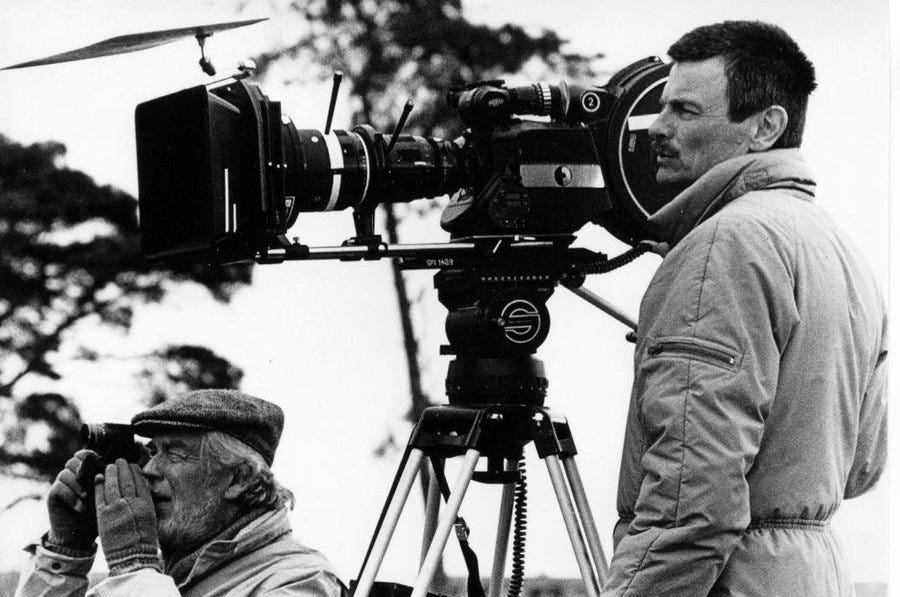I have an essay in WIRED today speculating about the consequences of the rise of intellectual interview podcasts. When we listen to podcasts we form parasocial relationships with the guests and hosts, psychologically treating it much as a real-life social interaction—shifting our tone of voice to match what we hear and so on. What are the long-term consequences of that? How are we changing? I had a lot of fun collaborating with Angela Chen who edited the piece.
What else have I been up to? It is gardening season. The strawberries are ripe. The cucumbers dead in a storm. Jerusalem artichoke, asparagus, tomato, gooseberry, grapes: still awaiting a verdict. The fava beans are run-over aphids and I really don’t feel like crushing 400 of those orange-black creeps between my fingers, but what gives.
I’m reading Andrei Tarkvosky’s diaries and a waist-high pile of book-long essays from the last decade (I’m tempted to explore longer forms). The essays are so far a disappointment, but Tarkovsky is a solace.
It is striking to me how motivated Tarkvosky is to make money (“Now I must earn as much as possible so that we can finish the house by the autumn” and so on), and how impossible that is to tell by looking at the films he chooses to do. But of course! I think. To make art at the scale of Stalker or Solaris you cannot be ignorant about worldly things like money or the politics of the Soviet bureaucracies: you have to wrestle with that and also remain true to your artistic vision. Those who can walk the narrow path where incentives and vision align, it is them we have to thank for the great monuments of the human soul, the cathedrals, the epics, the searing hights of literature, music, film.
Anyway, here’s the essay I wrote for WIRED.
Podcasts, parasocial relationships, and the birth of the Enlightenment
Recently, visiting the rural village where I grew up on the Baltic Sea Coast of Sweden, I was intrigued by how the pattern of my high school friends' conversations had changed. Over the decade and a half I had been gone, their speech had taken on an unmistakable tone, one that I do not associate with the pine forests and beach meadows and old lumber mills: that of American intellectual interview podcasts.
The shift isn’t all that surprising, given that they have likely spent more time listening to Lex Fridman and others talk than they have spent listening to their colleagues talk at work, especially because Scandinavia has the highest rate of podcast penetration in the world. Though podcasts are not an ideal medium for conveying information, it is ideal for the transmission of patterns of speech and thought. We’re not particularly good at learning facts by listening, but we are good at modeling the tone, cadence, and form of speech we listen to, especially if it is as unstructured and informal as a conversation.
When listening to a recording of someone talking, you react much as you do when talking to someone in person. It is a parasocial interaction, a psychological illusion in which you behave as if you are in a social situation even though the other party is just a voice in your headphones.
Warmly
Henrik






Long time reader, first time commenter. I read the article on wired, and thought it was an interesting idea, but I'm not convinced on the specifics. I know it is really difficult to compress a large amount of scholarship into a speculative short article, but is the central analogy between the renaissance and the current moment close enough to make useful predictions?
For instance, the Republic of Letters did not merely influence the way people talked to each other. Presumably, it had a more profound influence on the written word. But text en masse was an emerging phenomenon, and thus more susceptible to founder effects. Perhaps the Republic of letters did not influence existing modes of communication so much as it won the war for a new, and vitally powerful, medium.
It seems to me that podcasting itself will never be as directly influential a medium as the written word; it just does not compress information sufficiently. So in this counter interpretation, the question then becomes: will intellectual podcasting help shape new media, or only influence old ones?
Enjoyed reading this. Reflections of what makes a public sphere and how writing and reading letters was a means of intellectual stimuli. Fascinating jump forward to DYI broadcasting for reinvigorating public interest in the lines of influential thought patterns.